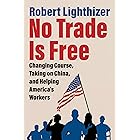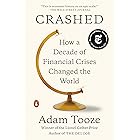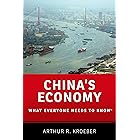| Digital List Price: | $18.00 |
| Kindle Price: | $9.99 Save $8.01 (45%) |
| Sold by: | Amazon.com Services LLC |
Your Memberships & Subscriptions

Download the free Kindle app and start reading Kindle books instantly on your smartphone, tablet, or computer - no Kindle device required.
Read instantly on your browser with Kindle for Web.
Using your mobile phone camera - scan the code below and download the Kindle app.



 Audible sample
Audible sample Follow the author
OK
Trade Wars Are Class Wars: How Rising Inequality Distorts the Global Economy and Threatens International Peace Kindle Edition

Explore your book, then jump right back to where you left off with Page Flip.
View high quality images that let you zoom in to take a closer look.
Enjoy features only possible in digital – start reading right away, carry your library with you, adjust the font, create shareable notes and highlights, and more.
Discover additional details about the events, people, and places in your book, with Wikipedia integration.
“The authors weave a complex tapestry of monetary, fiscal and social policies through history and offer opinions about what went right and what went wrong . . . Worth reading for their insights into the history of trade and finance.”—George Melloan, Wall Street Journal
"This is a very important book."—Martin Wolf, Financial Times
Trade disputes are usually understood as conflicts between countries with competing national interests, but as Matthew C. Klein and Michael Pettis show, they are often the unexpected result of domestic political choices to serve the interests of the rich at the expense of workers and ordinary retirees. Klein and Pettis trace the origins of today’s trade wars to decisions made by politicians and business leaders in China, Europe, and the United States over the past thirty years. Across the world, the rich have prospered while workers can no longer afford to buy what they produce, have lost their jobs, or have been forced into higher levels of debt. In this thought-provoking challenge to mainstream views, the authors provide a cohesive narrative that shows how the class wars of rising inequality are a threat to the global economy and international peace—and what we can do about it.
Longlisted for the 2020 Financial Times & McKinsey Business Book of the Year Award and named a Best Business Book of 2020 by Strategy + Business
- LanguageEnglish
- PublisherYale University Press
- Publication dateMay 1, 2020
- File size3804 KB
Customers who bought this item also bought
Editorial Reviews
Review
“This is a very important book.”—Martin Wolf, Financial Times
“An eagle-eyed perspective on the global economy, underpinned by close analysis and a remarkable clarity of exposition. The book is a terrific survey of the forces behind today’s global trade tensions and imbalances.”—Ann Pettifor, Times Literary Supplement
“[O]ffers a deeper argument about the source of the trouble.”—The Economist
“Matthew Klein and Michael Pettis have successfully woven a grand narrative linking income inequality, geopolitics, trade, finance and even environmental issues.”—Maximilian Kärnfelt, Merics China Briefing Newsletter
“[Klein and Pettis] pack into just a few hundred pages a sweeping and powerful account of the interconnections between cutthroat politics and global economic imbalances.”—Ryan Avent, Strategy + Business
“Elegantly argued and eclectically well-documented.”—Andrew Yamakawa Elrod, New Labor Forum
“Trade Wars Are Class Wars is well-argued, eminently readable . . . and provocative.”—Journal of Economic Literature
Winner of the Lionel Gelber Prize, sponsored by Munk Centre for International Studies
“An erudite, original, and provocative explanation of the global economic imbalances that have been at the root of numerous financial crises.”—Ernesto Zedillo, director, Yale Center for the Study of Globalization
“This is a book that everyone concerned with the global economy should read. A fascinating account of the damage that rising inequality—especially in China and Germany—has done to all our economies.”—Dani Rodrik, Harvard University
About the Author
Product details
- ASIN : B087TJKJRQ
- Publisher : Yale University Press; Illustrated edition (May 1, 2020)
- Publication date : May 1, 2020
- Language : English
- File size : 3804 KB
- Text-to-Speech : Enabled
- Screen Reader : Supported
- Enhanced typesetting : Enabled
- X-Ray : Enabled
- Word Wise : Enabled
- Print length : 292 pages
- Best Sellers Rank: #247,493 in Kindle Store (See Top 100 in Kindle Store)
- Customer Reviews:
About the author

Matthew C. Klein is the founder and publisher of The Overshoot, a premium subscription research service focused on the global economy, financial markets, and public policy. He was previously the Economics Commentator at Barron's, and has also written for the Financial Times, Bloomberg View, and the Economist. Before entering journalism, he was a research assistant at the Council on Foreign Relations and an investment associate at Bridgewater. Originally from Chicago, he lives in San Francisco.
Customer reviews
Customer Reviews, including Product Star Ratings help customers to learn more about the product and decide whether it is the right product for them.
To calculate the overall star rating and percentage breakdown by star, we don’t use a simple average. Instead, our system considers things like how recent a review is and if the reviewer bought the item on Amazon. It also analyzed reviews to verify trustworthiness.
Learn more how customers reviews work on AmazonCustomers say
Customers find the book provides interesting insights into economics for lay readers. They describe it as a compelling read that should be required reading for modern citizens. The content is written in a clear and concise manner that is easy to understand by lay people.
AI-generated from the text of customer reviews
Customers find the book informative and well-researched. It provides interesting insights into trade conflicts and balances. The authors did a good job researching and writing on a complex subject. Readers consider it a must-read for geopolitics, finance, or those interested in learning more about the topic.
"...The book is well-written, but, to its credit, it contains economic research and analysis that requires the reader to stay focused...." Read more
"...I think both authors did a fine job researching and writing on a very dense and complicated subject, and they made the content very accessible to..." Read more
"...These are the things I found to be important and interesting: Trade wars are often presented as a conflict between countries...." Read more
"...It’s an intriguing argument that counterpoints the prevailing focus that trade balances are only created due to trade balance changes between pairs..." Read more
Customers find the book engaging and worthwhile. They say it's a great read and should be required reading for modern citizens.
"...interest whetted by the quotes above, I think the book will reward your time to read it...." Read more
"...together with a back-drop of history you get the analysis in this excellent book...." Read more
"...Great book!" Read more
"Not cheerful, but lucid. Well worth reading, even if you do not agree with the conclusions, which have not been implemented so far." Read more
Customers find the book easy to understand and recommend it as a must-read for modern citizens. It provides concise arguments that are easy to grasp.
"...The book is well-written, but, to its credit, it contains economic research and analysis that requires the reader to stay focused...." Read more
"This book has concisely offered the best arguments, I have come across, for many of our greatest challenges...." Read more
"I can't overstate how important I think this book is. It's also an easy read...." Read more
"I found this book hard to read and comprehend despite of my reasonable high education and broad reading in economic and world politics...." Read more
Top reviews from the United States
There was a problem filtering reviews right now. Please try again later.
- Reviewed in the United States on June 21, 2020I have the hardback with 232 pages not including Notes and Index. The book is well-written, but, to its credit, it contains economic research and analysis that requires the reader to stay focused. Nonetheless, it didn't take too long to read it.
The wealth of the 1% versus the wealth of all others lies at the heart of the authors' argument. As the book cover says: "How Rising Inequality Distorts the Global Economy and Threatens International Peace." I'll let the authors speak for themselves: "A core argument of this book is that the distribution of purchasing power within a society affects its economic relations with the rest of the world. People who cannot afford to buy what they produce must rely on foreign demand for their output." Pg. 176.
The focus is largely on the U.S., China and Germany. In China and once again I'll let the book speak for itself: "The financial system, in other words, produced a massive and sustained transfer from the Chinese people to large manufacturers, infrastructure developers, real estate developers, and provincial and municipal governments. The transfer was worth about 5 percent of Chinese GDP each year between 2000 and the start of interest rate liberalization around 2013. With such cheap capital, it is not surprising that entities with privileged access to loans embarked on a massive investment spree, often with little concern about the quality of the projects they were financing." Pg. 112.
Germany had much the same policy response particularly after the reunification with the former East Germany. "Although many in the former communist bloc eventually benefited from convergence with their richer Western neighbors, the after reunification proved traumatic for many Germans in the the East and the West. Poverty and insecurity rose, especially for Germans with jobs. Workers at the top saw rapid income gains even as most other Germans experienced outright wast cuts. National income shifted from workers to the owners of capital." Pg. 131.
In both China and Germany, this shift in income from workers to elites arose from deliberate policy choices. The book examines these same effects in the U.S. It also looks at the effect of the dollar being the world's reserve currency and concludes that rather than the reserve currency status being an "exorbitant privilege" it has rather become an "exorbitant burden."
The book has two authors, Matthew Klein, a writer in Barron's, and Michael Pettis, a professor at Peking University. I am surprised that Dr. Pettis is able to work at Peking University and write about the Chinese economy with the clarity that he does. Perhaps the Chinese permit more freedom of speech than I expected. Mr. Klein writes a regular weekly column for Barron's which he does well.
If you find your interest whetted by the quotes above, I think the book will reward your time to read it. In particular, the comments about Germany were enlightening and, to me, surprising about the effects of German elite's policies on the lives of average Germans. I recommend the book highly.
If the effect of globalization interests you, I have read and recommend the following books: Twilight of the Elites by Christophe Guilluy (effect on France), Trade, Conflict and the Perilous Road Ahead, by Michael Pettis (one of the two authors of Trade Wars are Class Wars) with a principal focus on China, The Nationalist Revival by John Judis (focuses on the political push-back against globalization), The Levelling by Michael O'Sullivan (Irish author that looks at a range of issues including a disturbing historical background on globalization - World War 1 may have had its genesis in a late 19th and early 20th century push-back against an earlier version of globalization) and The Only Game in Town by Mohamed El-Arian (examines the Federal Reserve's role).
- Reviewed in the United States on April 27, 2024Mr. Klein and Mr. Pettis wrote an excellent book on trade policy's inexorable influence on global income distribution Essentially, countries that have open systems must either run a currency account deficit or a current account surplus. The currenct account and capital accounts is exclusively a feature of trade, so countries can save and spend in varying degrees while not affecting the current or capital accounts because it is either a closed system or it concerns solely domestic affairs.
Both writers did an excellent job giving detailed policy histories of China, Germany and the United States. When one reads these chapters, it becomes very clear why each countries' trade imbalances exists. They did a good job dispelling the prevasive tropes on Chinese compulsive saving culture, German industriousness and self-discipline or US reckless spending as reasons for why the three countries run trade surpluses and deficits. Roughly speaking, the main argument of how trade wars being class wars seems to be that trade surplus countries depress wages, depreciate currency, and investment spending in order to grow their industrial base and increase savings that come from the rich class. This hurts the lower and middle class because their purchasing power is depressed while taxes are extracted from them to grow the industrial base, which consequentially grows the wealth of the industrialists. While trade deficit countries grow wages, appreciate currency and increase investment spending in order to decrease its industrial base and decrease savings. This helps the lower and middle class because their purchasing power increases and taxes tend to regress for them while taxes for higher income earners increase, but it hurts the industrialists because exports become more expensive while imports grow fasters than exports. With all of that, one comes out of reading those chapters much more educated.
However, one critique is that I think the trade wars features comes later in the book rather than earlier, as it did take a while for me to see their arguments for how trade imbalances start class wars. Although it is obvious to readers with background knowledge on macroeconomics, it would be helpful for both authors to give more detail on who exactly gets affected by trade imbalances, as more attention was given to policy history of each country and that information wasn't as clear. I believe the authors did argue successfully that trade wars do cause class wars, but I humbly believe that they should have focused more attention on the class wars part to make their arguments more perceptible.
With their conclusion, their policy recommendations were very reasonable, given the constraints each country has with the global economy. I think both authors did a fine job researching and writing on a very dense and complicated subject, and they made the content very accessible to the average layman. Overall, I would recommend this book to anyone who is interested in learning about trade policy and how it influences and affects income distributions across the rest of the world.
Top reviews from other countries
 AliReviewed in Canada on September 13, 2024
AliReviewed in Canada on September 13, 20245.0 out of 5 stars Learn about history and economy and markets
When you read history books about ww2, it is framed as a fight between good and evil. Learn the true history through books like this.
Check out his podcast appearances for a synopsis
 Tengal2012Reviewed in Italy on April 22, 2021
Tengal2012Reviewed in Italy on April 22, 20214.0 out of 5 stars Interesting book
I don't agree with everything that's inside this book but roughly speaking it's a good assessment and synthesis of the macro history of the world even though it has a slightly left of center academic bias.
It is also a very good analysis of the chinese and south east asian model which so many tout but don't fully understand.
-
 E. HappelReviewed in Germany on March 27, 2021
E. HappelReviewed in Germany on March 27, 20215.0 out of 5 stars Very good / sehr gut
This is an important contribution to the debate about unequality and global imbalances. There are counter-arguments, as there were against Hobson/Imperialism, but nevertheless: informative and worthwhile.
Das Buch ist lesenswert, weil es gut argumentiert, dass Handelskriege die Nationen gegeneinander aufbringen, während in Wahrheit überall die Reichen gegen die Durchschnittsverdiener Wirtschaftskrieg führen.
 Gabriel SteinReviewed in the United Kingdom on January 5, 2021
Gabriel SteinReviewed in the United Kingdom on January 5, 20215.0 out of 5 stars Well worth reading
Michael Pettit is the world’s greatest authority on sectoral financial balances. In this book, he an Matthew Klein show that imbalances cannot be rectified by tariffs; that huge current account surpluses hurt the workers in the surplus countries; and suggest a way out. You may disagree with their proposals, but you should read the book.
 JLNReviewed in Spain on October 4, 2020
JLNReviewed in Spain on October 4, 20205.0 out of 5 stars Anaylisis and proposed action
A fresh view on globalization, at the reach o people with som basic economic knowledge. Cure against populism, old-fashioned leftism, and liberal-conservatism.













